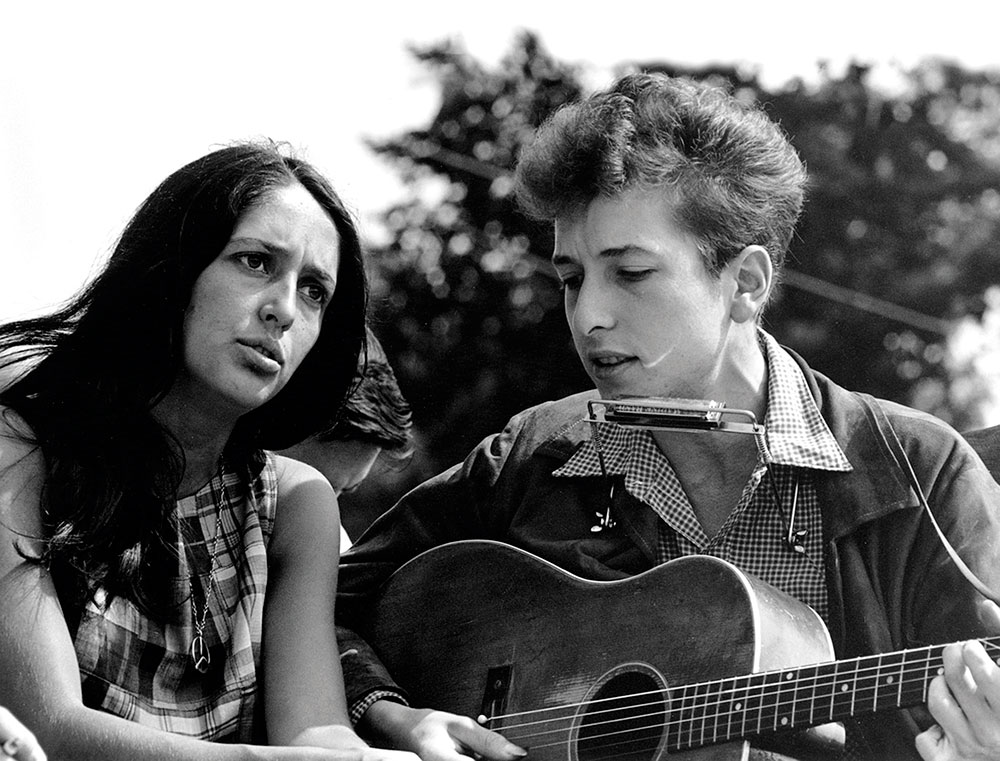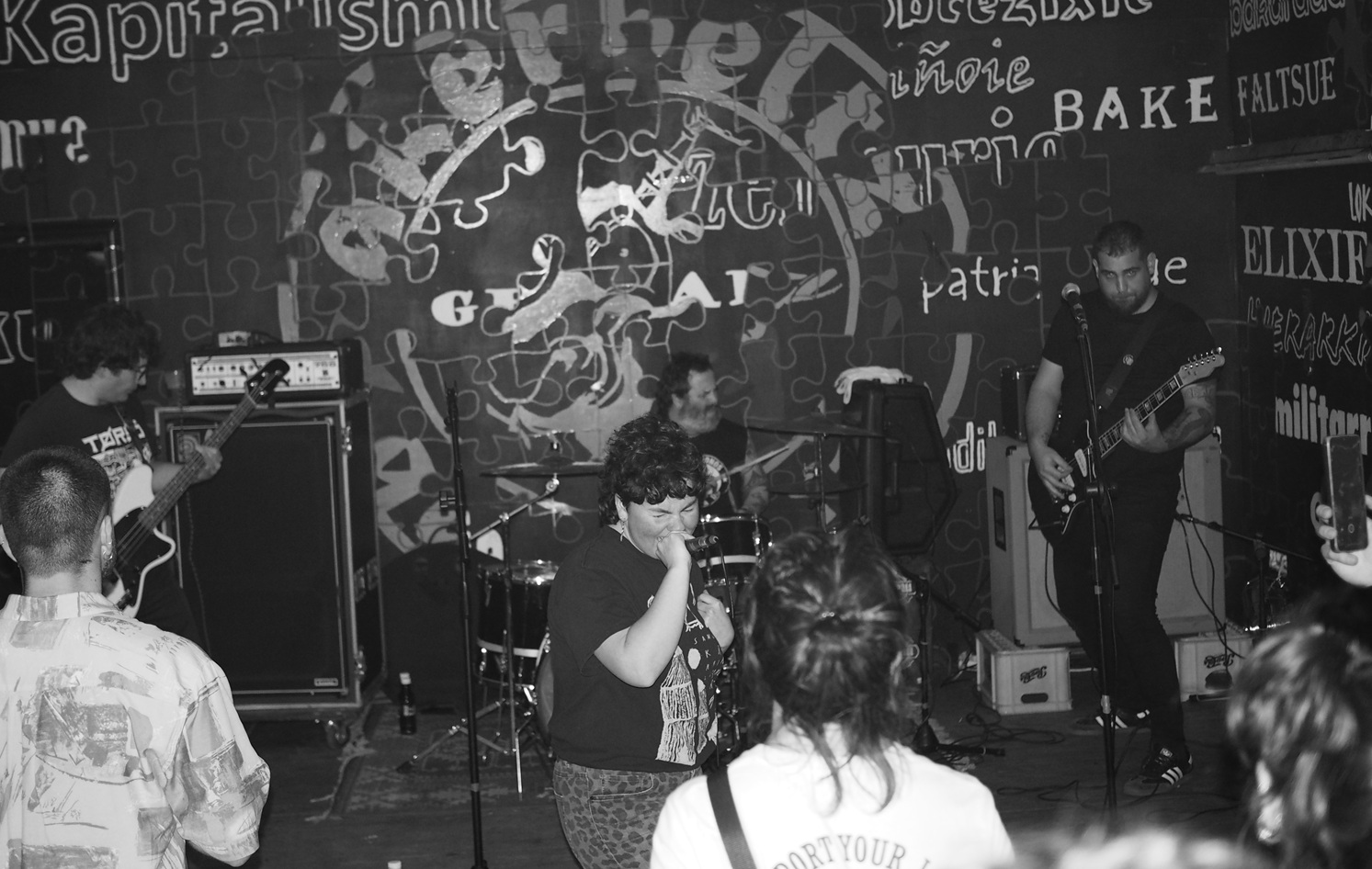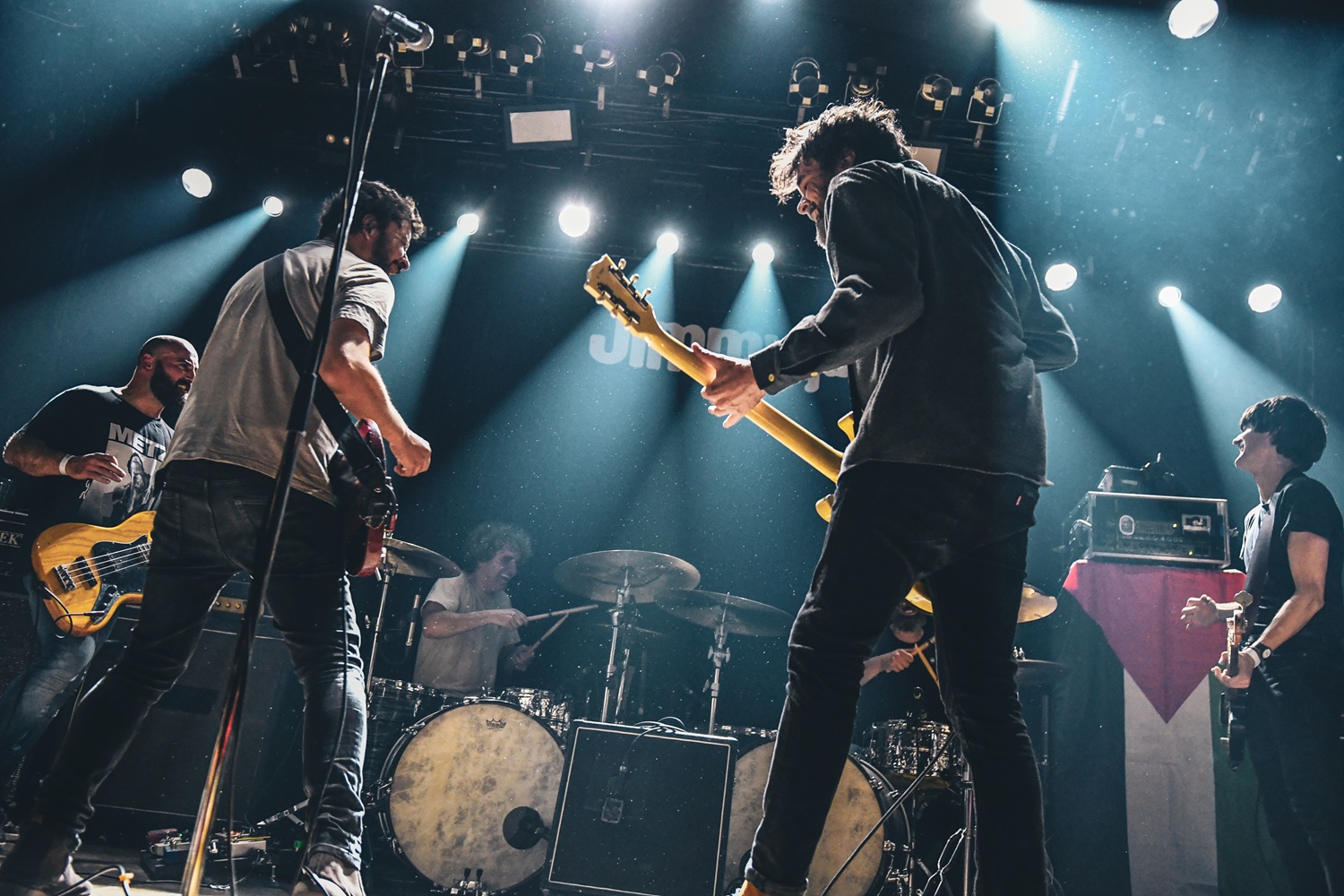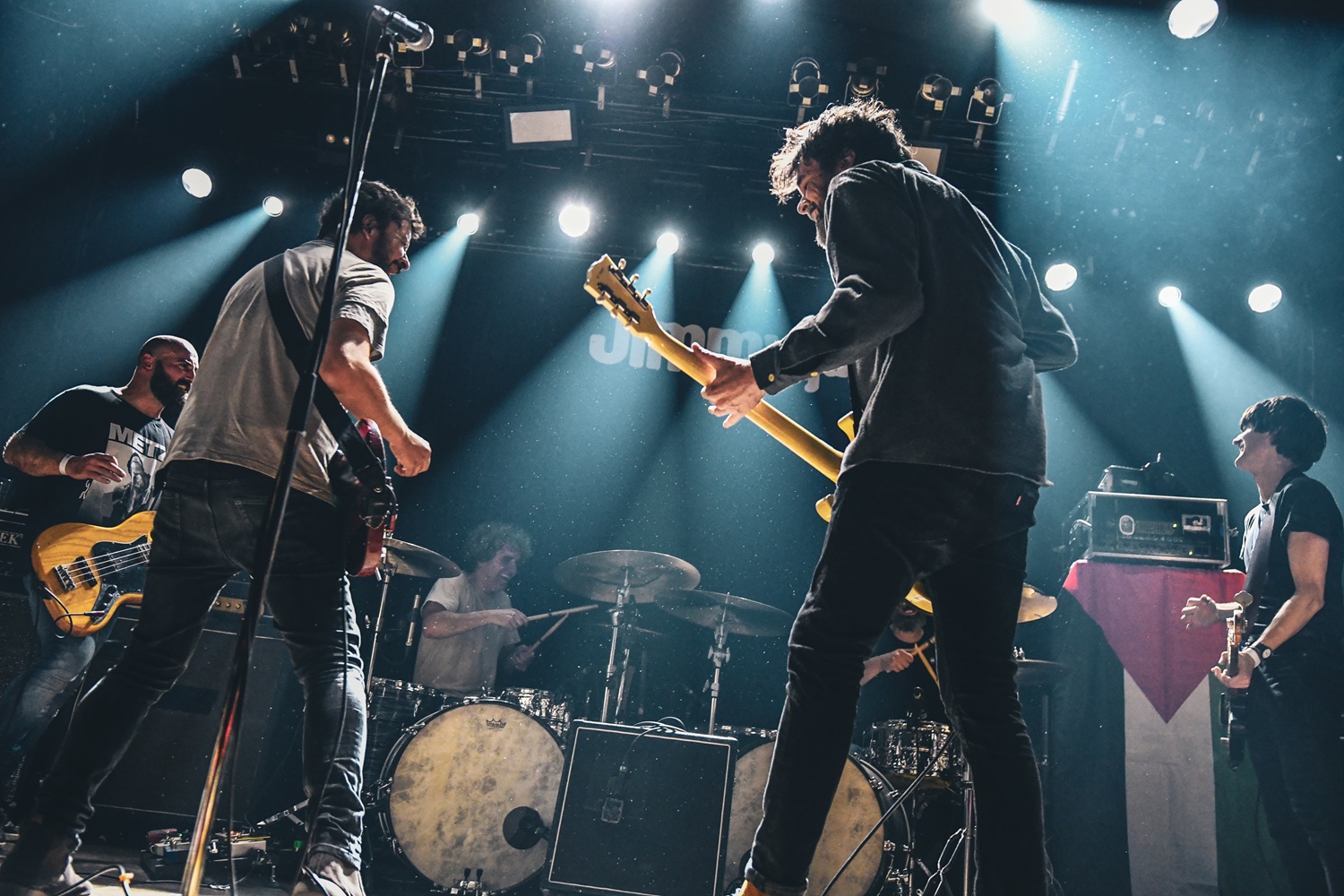New business with old songs
- Digitalization revolutionized the music industry at the beginning of this century, but from the ashes of the model based on the sale of records is emerging a new and, perhaps, more speculative form of business. Multinationals and investment funds are buying the rights of songs to multiply their profits thanks to the auditions they will have in the future.

The multinational Universal Music Group announced in December last year that it has acquired a full catalogue of Bob Dylan songs. This is a historic purchase in many respects: firstly, because of the amount of money that has been spent on the treatment, since although it has not been made public in particular it can be around 200 million dollars (165.5 million euros), according to the US media NBC, and, therefore, it has earned the title of one of the most expensive musical transactions ever made. And also because it indicates that the end of Dylan’s career is closer – no one should be surprised by the 79 years that the Minnesota artist has behind him, but it seems that with living myths it is difficult to recognize that they have the same limits as people of flesh and bone. In addition to knowing who will be playing songs such as the Like a Rolling Stone in the future, the news has revealed the business it is creating lately with the rights of old songs.
It is known that every time a song recorded on someone's behalf is heard on the radio or on television, or every time a user plays it on a digital platform, the author receives an amount of money. These royalties have also been a source of controversy in comparison to those which the music industry was distributing in its day thanks to the sale of albums, since nowadays the money that they give platforms such as Spotify or Youtube only entrusts it to a small club of world-renowned artists. Yes, if you have composed Blowin’ in the Wind or Hurricane, there is no problem: they have been generating benefits for decades and the world will have to change a lot so that in the future those songs will be left unpublished.
In this sense, the catalog of about 600 songs by Dylan has been a long-term investment for Universalia. And it's not the only kind of treatment that's been done. An article published in the journal The Guardian in the same year 2020 has made it possible to know the agreement signed by Stevie Nicks, singer of Fleetwood Mac, with the company Primary Wave, by which the company won most of the artist's catalog for $100 million (82.8 million euros) and Taylor Swift sold the rights of the first six albums to the investment fund Shamrock. As has happened with many other goods, the exchange value of songs is increasingly being used for financial speculation. And it looks like it's a growing business.
Exchange value of music
Merck Mercuriadis knows something about that. Since Virgin entered the multinational at the age of 19, he lives on taking money out of songs, and today Hipgnosis is the head of the investment fund. He explained his philosophy in an interview he offered to the web Thought Economics in 2019: “Songs of success and music, in general, have intrinsic value. But people don't realize that when a song becomes something with proven success, the evolution of the benefits associated with it is easily predictable and reliable, and so you can invest in it. Songs are as valuable as gold or oil.” Moreover, he argues that there may be investments in excess of gold or oil, as the songs are not so closely linked to fluctuations in the markets. According to Mercuriadis we are always consuming music, while very few can buy “safe values” such as gold.
It seems that the COVID-19 pandemic has given him the reason: as we spend much more time at home, Spotify payment users similar platforms have grown in 2020. More public, more potential listeners of songs purchased by Hipgnosis: Mercuriadis’s company has wagered on old international hits, from Livin’ on a Prayer by Bon Jovi to Sweet Dreams by Eurythmics (Are Made of This), but also has more recent hits such as Despacito.
Investing in the future benefits of past songs is not a novel invention. As reporter Mark Sweney pointed out in The Guardian, in the 1990s the “Bowie Bonds” were put on sale, with an interest rate of 7.9% to ten years for the songs the English soloist published until 1993. Prior to the operation of the account, similar operations were carried out with the repertoire of other artists such as Iron Maiden or James Brown. But in the 2000s, the record industry, as we knew it until then, hit bottom, so the treasurer decided to invest in other assets.
Paradox of platforms
Streaming platforms have become the new cost-effective model for the musical business, overcoming the sale of records, as well as downloads made through P2P networks, even if the latter are free. By the end of 2020, 450 million people paid for listening to music on Apple, Amazon or Spotify platforms around the world. It's a lot of money. And to understand how things work, as Lester Freamon explained in the The Wire series, you have to follow the money: at the time when the profitable business was selling records, the industry had to put the emphasis on novelties, promoting the newly published albums in order to be able to sell as much as possible the copy of the product that was distributed on physical medium. In the digital model, since there is no physical separation, it seems that the novelty variable has prevailed over another, which can be summarized in terms of “impact” or “viral”. But since getting a hit has become a function of the whimsical algorithms of each platform and those who put money don’t like playing in Russian roulette, it’s not hard to understand why millionaire contracts start to appear in exchange for “forever” songs.
The logic of economic benefits is somewhat paradoxical: in this hypermodernity plagued with digital devices, with all the music from all over the world in one click, when everything is yet to be discovered, the big coins have wagered on well-known songs that were recorded decades ago. Dylan did not succeed in singing “As the present now / Will later be past” from The Times They Are A-Changin. In fact, in the music industry, the past is the new present.
Obduction of Amenaza / Zirt Zart (Split-ep)
2024
---------------------------------------------------
The musical panorama is gigantic, impassable. Among them there are a few large groups that absorb all the foci; many others that are dedicated to the pursuit of it, and... [+]
Aposapo + Mäte + Daño Dolor
When: April 5th.
In which: In the Youth Center of Markina-Xemein.
---------------------------------------------------------
I’ve made my way to the cheese house with the shopping cart full of vegetables, and we’ve spent the evening cutting... [+]
Poliorkêtês
Kerobia
Autoekoiztua, 2025
--------------------------------------------------------
Azken aldian, lerrootan asko nabil hausnartzen musikak izan beharko lukeen “misio historikoaz” eta abarrez. Eta, nolabait, zer egin beharko lukeen... [+]
On March 7, the 150th anniversary of the birth of Maurice Ravel, the best Basque composer of all time. And in LA LUZ a tribute was paid to this composer, recalling the influence of the famous Bolero on the collective imagination.
By chance, Deutsche Grammophon has just released... [+]
Olatz Salvador
Noiz: martxoaren 15ean.
Non: Deustuko jaietan.
------------------------------------------------
Martxoak beti du deustuarrontzat kolore berezia; urtero ospatzen ditugu jaiak, San Jose egunaren bueltan. Bi asteburu bete festa, eta urtetik urtera Deustuko... [+]
Antifa hardcore
Lee-Kore + Hoben
Autoekoizpena
---------------------------------------------------------
Tamalez ez da ohikoa Arrasaten hardcore kontzertuak egitea, bestelako musika eszenak nagusitzen direlako. Hala bada, joan den larunbatean herriko gazte batzuen... [+]
Hunkituta eta ilusioz egin dut Iruñetik Oronozerako bidea. Maite dut Olaia entzutea, baita hizketan ere. Herriko farmaziaren ondoan autoa utzi eta balkoitik agurtu naute hark eta bere zakur Arak. Grabagailua martxan jarri aurretik, bueltaxka egin dugu frontoira eta Arak... [+]
Bizitza eztia
Verde Prato
Plan B Records, 2024
--------------------------------------------------------------
Ousmane Sembène zinemagile senegaldar ospetsuari galdetu zioten ea bere pelikulak Europan ulertzen ote ziren. Erantzuna, epikoa: “Izan gaitezen... [+]
Inoren Ero Ni + Lisabö
Noiz: martxoaren 14an.
Non: Gasteizko Jimmy Jazz aretoan.
----------------------------------------------------
Izotz-arriskuaren seinalea autoko pantailatxoan. Urkiola, bere mendilerro eta baso. Kontzertuetara bideko ohiko errituala: Inoren... [+]

























